Congress could protect same-sex marriage. Here’s where Idaho senators stand
A bipartisan group of U.S. senators working to pass a law aimed to protect couples in same-sex marriages likely won’t find support from Idaho’s Republican senators.
U.S. Sen. Mike Crapo, in a Senate candidate debate earlier this month, publicly stated for the first time that he would oppose the bill. Meanwhile, Sen. Jim Risch has said he’d be in favor of a U.S. Constitutional amendment that defined marriage as between one man and one woman.
Crapo, 71, who is running for reelection to his fifth term argued that the decision of whether to recognize same-sex marriage is a states’ rights issue that should involve no federal intervention.
“I will not support the legislation that is being proposed in the Senate right now,” Crapo said. “This is one more example … of where the federal government is trying to step in and have a federal rule that forces all states to follow its law. We cannot do that.”
The bill, known as the Respect for Marriage Act, was slated for a vote in the Senate last month. But the bipartisan group of senators — made up of three Republicans and two Democrats — lobbying colleagues for their endorsement postponed it until after next month’s midterm election, believing the revised timetable gives them a better chance to achieve the 60 votes they need to pass the bill.
Risch, whose current term ends in 2026, would not yet commit to a position on the bill, his spokesperson told the Idaho Statesman by email.
However, Risch, 79, has issued his commitment to back the Defense of Marriage Act (DOMA) that defined marriage as between one man and one woman. It also prevented states that didn’t observe same-sex marriage from having to recognize a license for one from another state.
“At different times, a constitutional amendment on the legal definition of marriage has been proposed,” Risch said on his Senate website. “Should an amendment defining marriage in the same way as DOMA come before the full Senate, I will support it.”
How Idaho banned same-sex marriage
Risch and Crapo frequently vote in lockstep. During a February visit with Risch to the Idaho Legislature, Crapo talked of the two federal lawmakers’ close personal and political connection.
“We talk together over every vote before we cast it,” Crapo told members of the Idaho House. “Every vote of significance, we confer, and we also, 99% of the time — or more — cast two votes from Idaho, for or against the various matters that are under consideration, but that are consistent with Idaho’s common sense.”
Instead, Crapo advocated for what he said was continuing to allow Idaho to set its own course on the issue of same-sex marriage. Idaho has recognized same-sex marriage for eight years — since 2014.
“The state of Idaho has addressed this issue, and it is the state’s right to determine this issue, and I support the state’s outcome,” he said. “My point here is not what the outcome should be, it is who is in charge.”
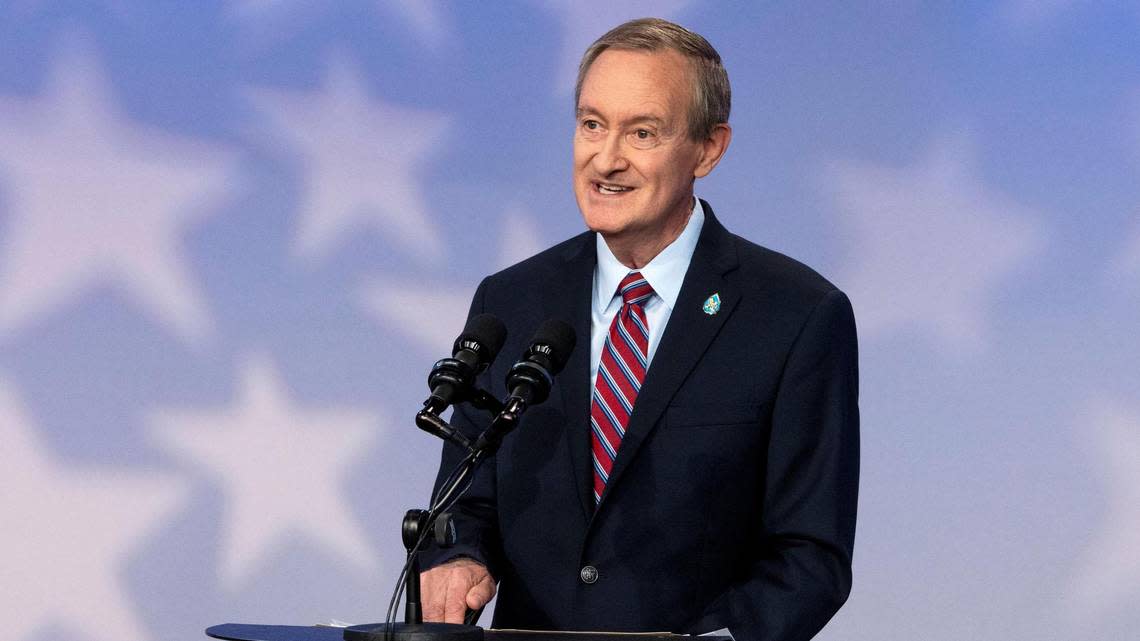
In fact, Idaho only recognizes same-sex marriage because it is required to by the federal government. A 2006 ban on same-sex marriage still sits unchanged in the Idaho Constitution. When asked whether he would support overturning same-sex marriages in the state, Crapo said he would not.
That year, the Idaho Legislature approved placing a constitutional amendment before voters, asking them to agree that “a marriage between a man and a woman is the only domestic legal union that shall be valid or recognized in this state.” Constitutional amendments in Idaho require two-thirds support from each of the two legislative houses, then voters must approve it by a simple-majority vote.
They did, adopting the amendment with 63% support.
But in 2014, a federal district judge in Idaho struck down the amendment for violating the guarantees of equal protection under the U.S. Constitution. A year later, the U.S. Supreme Court in a 5-4 decision issued a ruling that guaranteed recognition of same-sex marriage in all 50 states.
By 2015, when the Supreme Court ruling came down, Idaho was one of 30 U.S. states that changed their constitutions to ban same-sex marriages, and had yet to take any steps toward repealing them. That was even though the court’s decision left those laws unenforceable, the Associated Press reported at the time.
Idaho U.S. representatives divided on bill
The Respect for Marriage Act would enshrine in federal law that states must recognize any same-sex and interracial marriages between two people already sanctioned in another state. It also would repeal and replace the federal Defense of Marriage Act, which overwhelmingly passed in 1996, and established that a legal marriage in the U.S. is between one man and one woman.
Advocates of the replacement bill say the additional protections are needed, after the U.S. Supreme Court this year overturned landmark precedents that previously guaranteed the right to an abortion under federal law. In his written opinion on the abortion decision, Supreme Court Justice Clarence Thomas said that the court should also reconsider other earlier decisions, including same-sex marriage, and wrote that the court has “a duty to ‘correct the error’ in those precedents.”
The bill already passed in the U.S. House with considerable bipartisan support in July.
Idaho Reps. Mike Simpson and Russ Fulcher — Republicans also running for reelection in November — split their votes on the issue. Simpson supported the bill, while Fulcher opposed it.
The bill “unnecessarily inserts the heavy hand of the federal government where it is not needed, creating a scenario where Idaho may be forced to recognize an evolving definition of marriage according to other states,” Fulcher said in a statement on Facebook, explaining his no vote.
Senate Majority Leader Chuck Schumer, D-New York, has committed to hold a vote later this year. Bill sponsors, which include Sen. Tammy Baldwin, D-Wisconsin, continue to search for additional Senate Republican support. Baldwin, who is lesbian, became the first openly gay woman elected to the U.S. Senate in 2013.
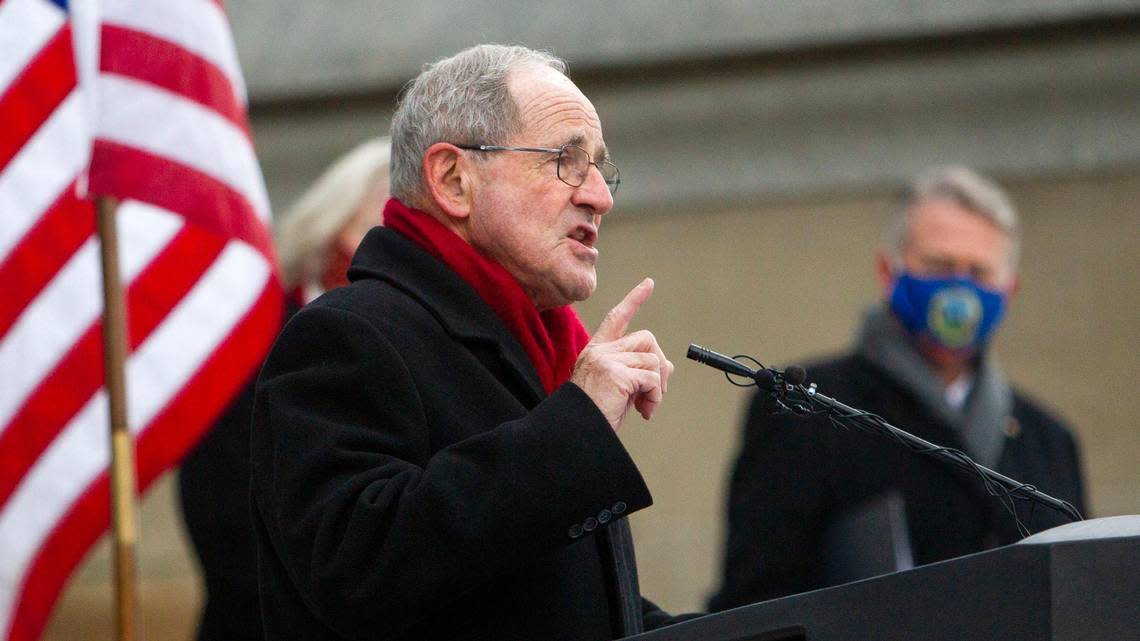
In a statement to the Statesman, Leo Morales, executive director of the American Civil Liberties Union of Idaho, urged the state’s two U.S. senators to support the bill.
”Any Supreme Court decision that overturns marriage equality would have devastating consequences for same sex couples in Idaho and across the country,” Morales said. The Respect for Marriage Act “would give certainty to same-sex couples that their marriages will continue to enjoy equal treatment under federal law as the U.S. Constitution requires.”
Senate challengers weigh in
Crapo’s two opponents at last week’s debate also differ on the bill.
Scott Cleveland, 61, of Garden City, is an independent candidate who said he would caucus with Republicans if elected. He joined Crapo in opposing the proposed legislation.
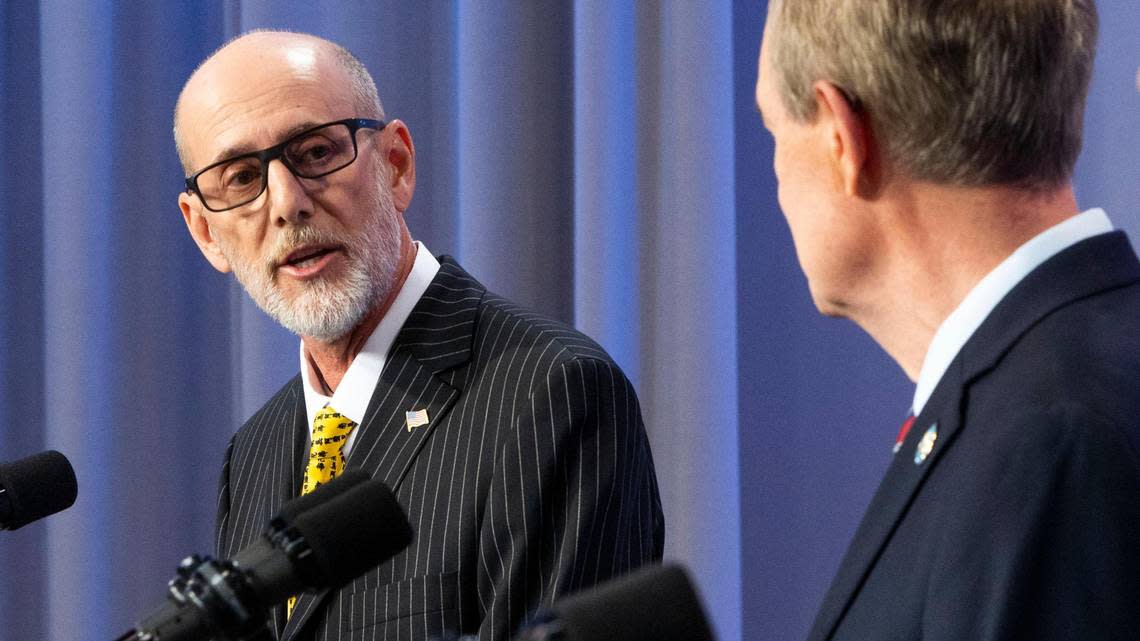
“My personal position on gay marriage and gay couples is, I’m OK with the gay,” Cleveland said. “They’re good people, and there’s no reason they should be treated any different.
“However, I will say this: While I think gay people are different, I don’t think they’re special,” he said. “I don’t think they deserve their own special month, I don’t think they need a special flag. I think if we’re going to reduce discrimination in America, we need to treat everybody the same, including the gay community.”
Cleveland said he would not seek to overturn existing same-sex marriages in Idaho if the Supreme Court were to nullify current federal protections nationwide, calling such an approach “a bit ridiculous and old-fashioned.” He also said he took issue with “the gay agenda” being “pushed on children” in Idaho’s school systems.
Cleveland did not respond to a Statesman request for more information or evidence of Idaho schoolchildren being forced to learn about same-sex issues in the state’s public schools.
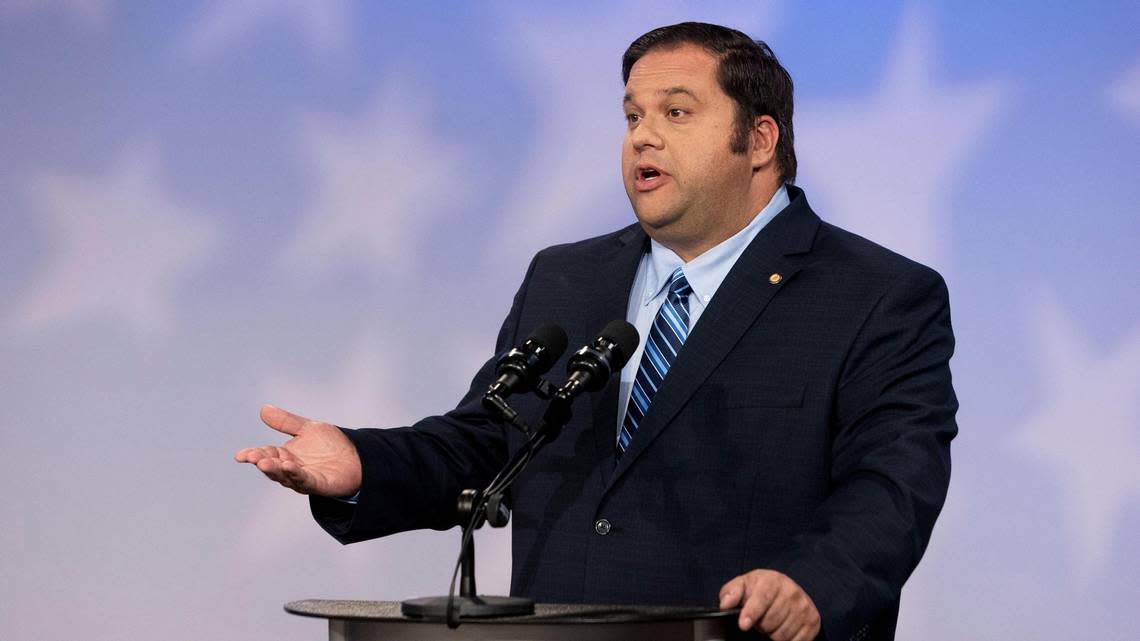
Democratic Party candidate David Roth, 41, of Idaho Falls, is an openly gay single father of two adopted children. He said during the debate that he supports marriage equality nationwide.
“I talked about those fundamental rights — what make us up as individuals, what make us up as Americans — those should not vary from state to state,” Roth said. “If I’m married in one state, I’m married in any other state. It shouldn’t change no matter where we are.”
Should voters reelect Crapo, he’ll become the second-longest service U.S. senator in Idaho history. Before that, Crapo served three terms in the U.S. House, from 1993-1999.
In 1996, Crapo, a member of the Church of Jesus Christ of Latter-day Saints, voted in support of the Defense of Marriage Act. The Mormon church has never permitted same-sex marriage and considers acting on “same-sex attraction” a sin and “immoral behavior.”
Roth noted in a phone interview with the Statesman that Crapo’s vote in favor of the 1996 federal law that defined marriage as between one man and one woman seemed to be a contradiction over his current stance, which would allow Idaho to continue to recognize same-sex marriages.
“The root of the issue for me is that his means to the end have changed over the years, but the end never has,” Roth said. “It’s about accomplishing his ideological goal, which is that marriage should be between a man and a woman.”
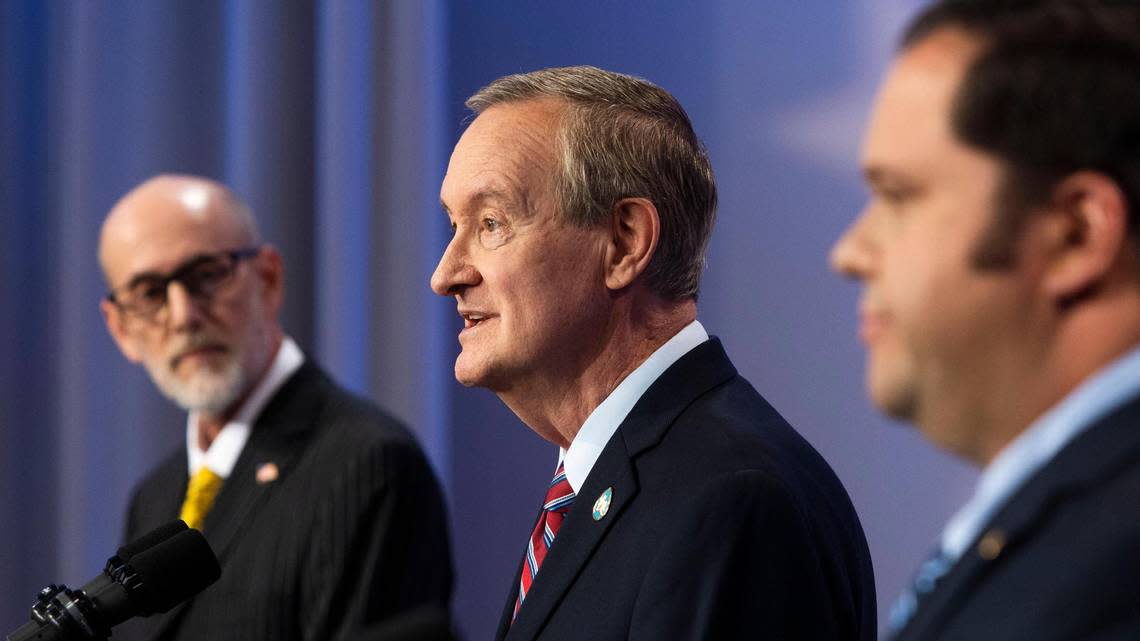
Asked by the Statesman for clarification on Crapo’s position, a campaign spokesperson denied that Crapo had been inconsistent.
“Sen. Crapo was clear and remains firm that he supports states‘ rights to determine the definition of marriage,” said Melanie Lawhorn, Crapo’s spokesperson and a campaign volunteer. “He will aggressively fight for the right of the state of Idaho to define marriage as its voters and duly elected officials determine. This includes Idaho’s right to choose whether to challenge any federal court rulings.”
